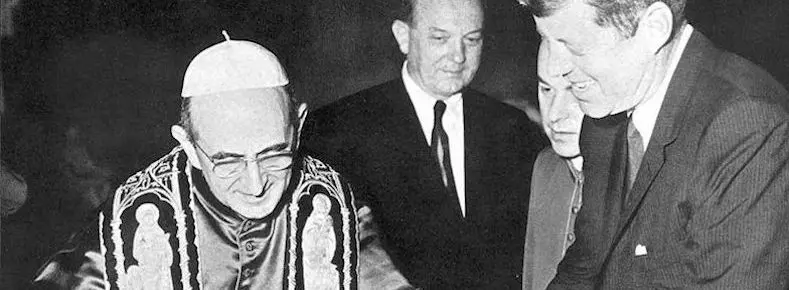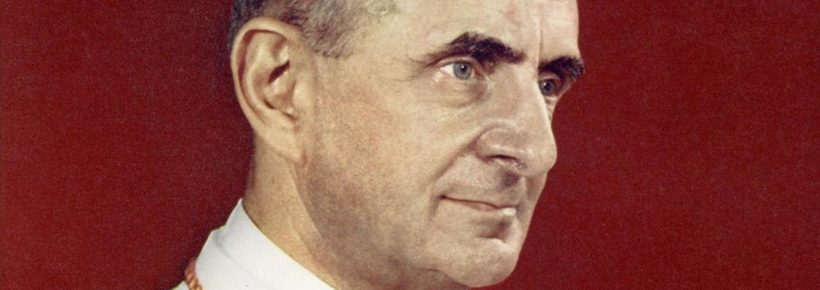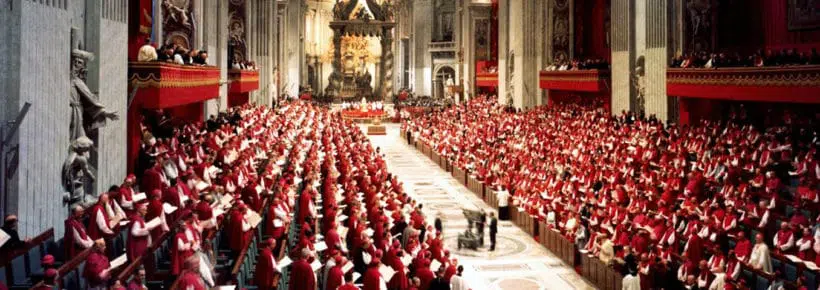Humanae Vitae Was No “Invention.” It Repeated Church Teaching.
Since the 1960’s Western culture has been in a downward spiral of moral decadence. The contraceptive pill, introduced in the U.S. during that decade, brought about the so-called “sexual revolution.” This revolution brought in turn an unprecedented increase in sexual promiscuity, conjugal infidelity, divorce, abortion, and other evils.1 The Church, though, is a bulwark for Truth.
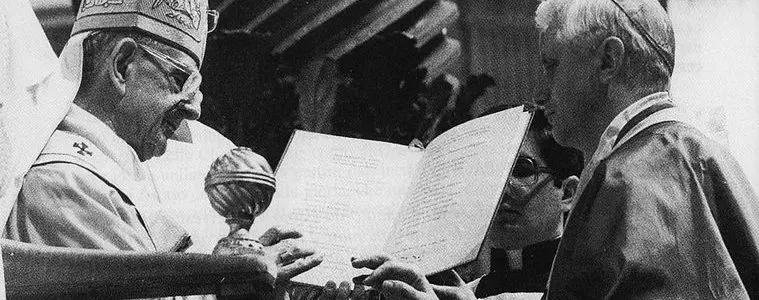
The soon-to-be Pope Saint Paul VI in 1977, making the future Benedict XVI a Cardinal of the Church.
Pope Paul VI saw these problems and foresaw their worsening. He decided to write an encyclical called Humanae Vitae, which translated from Latin means “About Human Life.” This prophetic document was published on July 25, 1968. Therefore, this year of 2018, the Church celebrates the 50 anniversary of this landmark document. It is fitting, then, that we dedicate a series of articles on the content of Humanae Vitae.2 In this encyclical, Paul VI reiterated the 2000-year-old Church teaching against contraception, sterilization, and abortion, as well as her also perennial teaching in favor of the transmission of human life and conjugal love. He did so in a more personalistic language than his predecessors, while at the same time restating the essence of this unchangeable and infallible teaching. In fact, the teaching contained in infallible Humanae Vitae is not simply a teaching of the Church, but a teaching given to the Church by God Himself.3
Unfortunately, Humane Vitae has experienced a worldwide rejection by many people, both inside and outside the Catholic Church. There have been rumors circulating that suggest there is a so-called “commission” inside the Vatican itself whose purpose is to “reinterpret” this encyclical. This is yet another reason to explain the content of a Church document that has been misunderstood and harshly criticized—even by many who have not read it—perhaps like no other document in the history of the Church.
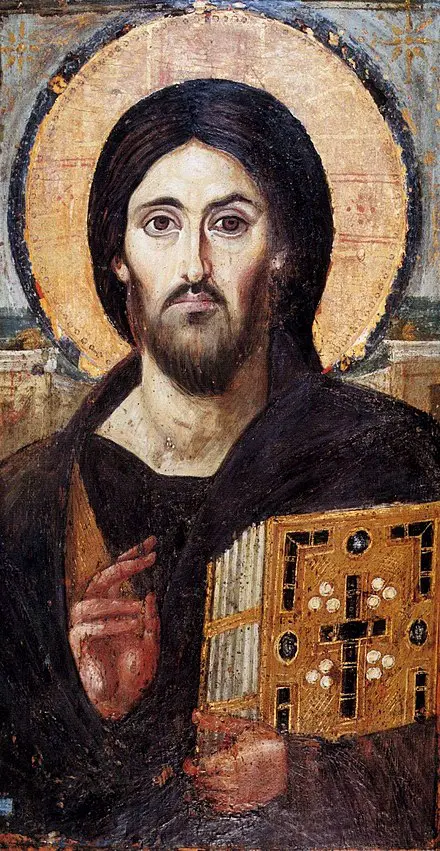
Truths handed down by Christ are dogma and thus infallible.
The ignorance, misunderstanding, and rejection of the infallible Humanae Vitae have been caused in great part by the silence of the shepherds (bishops, priests, deacons, and lay leaders). This silence or even outright rejection has in turn been caused by the subtle or open dissent of not a few theologians who teach at seminaries and Catholic universities, and who also publish books and articles. In many cases, these influential theologians have not been properly disciplined by Church authorities, and so many of them have even gone to the secular media to further expand upon their errors.2
Among inane theological opinions on Humanae Vitae, one that stands out and which is dealt with at the beginning of the document itself is that the Church lacks the authority to teach on intimate matters such as “family planning.” These theologians have assumed a position of absolute autonomy, as if their theological opinions were on equal footing with the authentic teaching of the Magisterium of the Church, which is comprised by the pope and the bishops in communion with him, and in an unbroken doctrinal line of continuity that reaches all the way back to the Apostles and to Christ Himself.4,5
Among the dissenting theologians (whether ordained or lay) are those who falsely claim that Humanae Vitae has departed from the teaching of the Second Vatican Council (1962-1965). It ended three years before the publication of the encyclical.6
As we shall see in the next articles of this series, the teaching of Humanae Vitae refutes these and other false claims. Not only that, we shall see how an honest and attentive reading of this document brings about an understanding and appreciation of the beautiful teaching of the Church on the transmission of human life, on conjugal love, on family life, and on the intrinsic evils of contraception, sterilization, and abortion. These grave evils not only go against the transmission of human life, but also against conjugal love itself.
Later articles in this series:
- Part II: The Predictions of Humanae Vitae
- Part III: The First Prophecy
- Part IV: The Second Prophecy
- Part V: The Third Prophecy
- Part VI: The Fourth Prophecy
- Part VII: Modernity’s Challenges to Humanae Vitae
- Part VIII: The Church’s Right to Teach on Birth Control
- Part IX: The Church’s Teaching Authority
- Part X: Principles of Humanae Vitae
- Part XI: The Moral Norm of Humanae Vitae
- Part XII: Doctrinal Objections to Humanae Vitae
- Part XIII: Pastoral Guidelines
+ Endnotes
[1] Cf. Comisión Episcopal Española para la Doctrina de la Fe, Un encíclica profética: la Humanae vitae. Reflexiones doctrinales y pastorales, November 20, 1992, pp. 2-3, nos. 3 and 10.
[2] Cf. Ibid., p. 4, no. 14.
[3] Cf. Humanae Vitae, no. 4.
[4] Cf. Una encíclica profética p. 4, no. 17.
[5] Cf. Catechism of the Catholic Church, August 15, 1997, nos. 85-87.
[6] Cf. Una encíclica profética, p. 5, no. 22.
Related Content
Adolfo is the Director of Education for Hispanic Outreach for Human Life International and of HLI's Hispanic outreach arm Vida Humana Internacional. He has a Masters in Theology from St. Vincent de Paul Regional (Major) Seminary and a License in Moral Theology from the Alphonsian Academy in Rome.
Adolfo has traveled frequently to VHI’s affiliates in Latin America to give talks, training sessions, and media interviews. He has authored and co-authored books, articles, reports, and a pro-life training course for Hispanics in the U.S. Adolfo has also participated in the production of two TV pro-life series in Spanish, which have been aired through EWTN en Español.



